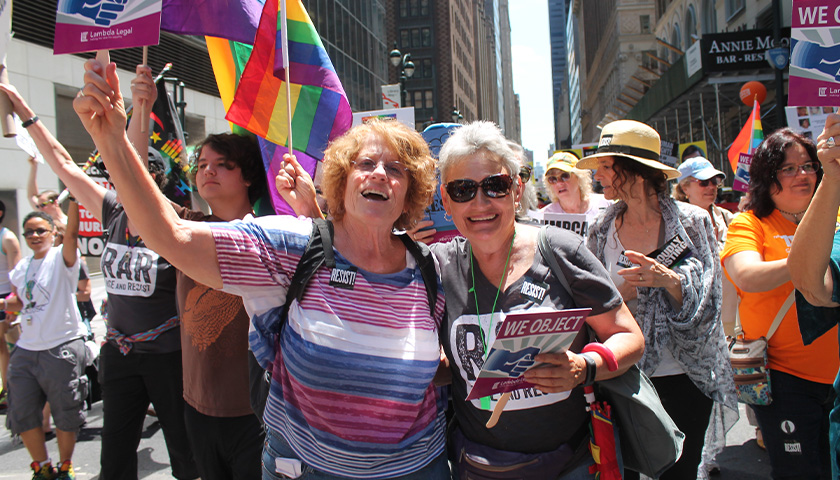A department of the Tennessee state government dedicated to helping those who have been released from prison is touting a Vanderbilt University study aimed at understanding the re-entry of LGBT people into society.
“Thank you to Ms. Danait Issac out of @VanderbiltU for including us in the first part of her study on reentry efforts for the justice-involved LGBTQ+ population. These are important conversations and we look forward to your work in the future! #PrideMonth,” the Tennessee Office of Reentry said on Twitter, attaching the study.
Thank you to Ms. Danait Issac out of @VanderbiltU for including us in the first part of her study on reentry efforts for the justice-involved LGBTQ+ population. These are important conversations and we look forward to your work in the future! #PrideMonth https://t.co/9axu4T2qym
— TN Office of Reentry (@reentrytn) June 10, 2022
The Office of Reentry is part of the Tennessee Department of Corrections (TDOC), which is overseen by Gov. Bill Lee (R).
“LGBTQ+ people are overrepresented in the U.S. carceral system. A 2021 report from
the Prison Policy Initiative—compiling existing LGBTQ+ research alongside national data
sets—revealed a number of staggering statistics regarding LGBTQ+ people and the
criminal justice system. In particular, lesbian, gay, and bisexual people are incarcerated at
nearly three times the rate compared to the general population,” according to the Vanderbilt study.
The study says that LGBT former prisoners face challenges that are unique from their heterosexual counterparts upon reentering society.
It claims that Tennessee has 35 anti-LGBT laws and policies, though it does not specify what those policies are.
“The goal of this study is to gain a better picture of the landscape of resources and support for those who identity as LGBTQ+ and have prior justice involvement as well as identify barriers and potential intervention points,” it says. “The findings of this qualitative investigation provide recommendations and actionable steps for re-entry programs so that they can better serve the needs of formerly incarcerated LGBTQ+ individuals and prevent recidivism in a vulnerable population.”
Using what it calls an “LGBTQ policy climate,” it says that Tennessee is a tough state for LGBT people to live in, noting that on a 42.5-point scale of LGBT friendliness, Tennessee scores a -6.
The study goes on to provide suggestions for how Tennessee can be more friendly to the state’s rehabilitated LGBT convicts.
“Re-entry organizations should create LGBTQ+ specific programs and spaces,” says one suggestion. “In the interviews with Free Hearts and TN Office of Reentry, the code ‘colorblind view’ emerged revealing that interviewees may not be aware that providing the same or “equal” re-entry resources and opportunities for LGBTQ+ people as the general population is not enough to ensure a healthy re-entry. Instead, a more equitable system would recognize that formerly incarcerated LGBTQ+ people face unique barriers and would allocate the exact resources they need to reach an equal outcome.”
The researchers also suggested that re-entry programs should create “LGBTQ+ cultural competency training,” and that those programs “should implement a housing/employment vetting process that verifies that their client’s new home and work environment is LGBTQ+ inclusive.”
Read the full study here.
_ _ _
Pete D’Abrosca is a reporter at The Tennessee Star and The Star News Network. Email tips to [email protected].
Photo “Gay Pride Parade March” by Elvert Barnes. CC BY-SA 2.0.








